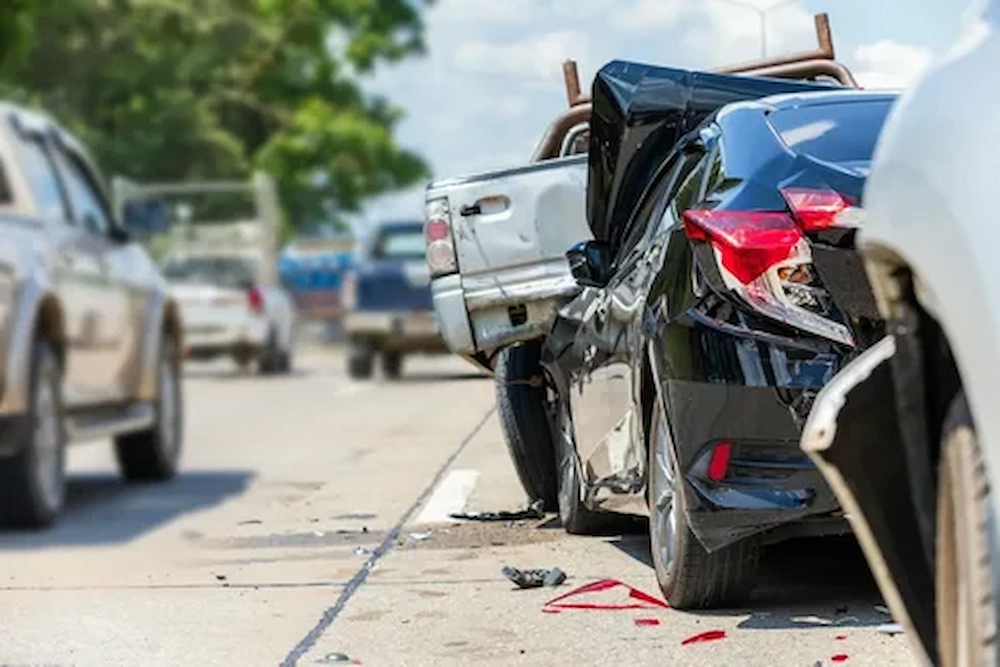Car accidents happen every day, leaving drivers, passengers, and families dealing with injuries, stress, and vehicle damage. The truth is, most crashes are avoidable. By knowing the most common causes of car accidents, drivers can take steps to protect themselves and others. At Unique Auto Collision, we’ve helped countless customers recover from accidents, and we understand the mistakes and conditions that often lead to them.
1. Distracted Driving
Distracted driving is the number one cause of crashes worldwide. Modern drivers face constant interruptions, text messages, phone calls, navigation apps, or even adjusting the radio. Looking away from the road for just five seconds at 55 mph is like driving blind across a football field.
This type of distraction is dangerous because it combines visual, manual, and cognitive factors, you’re not looking, not controlling, and not thinking about driving. The solution? Put phones on “Do Not Disturb,” set your route before driving, and keep both hands on the wheel.
2. Speeding
Speed limits exist for a reason. Speeding car accidents are more severe because reaction time is reduced, and the impact force multiplies. In city traffic, speeding often causes rear-end collisions, while on highways, it can lead to multi-car pileups.
Driving a little faster may seem like a time saver, but the risks far outweigh the minutes gained. Safe drivers match speed to traffic and weather, leaving plenty of space to stop if necessary.
3. Drunk Driving
Despite decades of campaigns, drunk driving remains a top cause of fatal car accidents. Alcohol and drugs impair judgment, coordination, and reflexes, making even experienced drivers unsafe. Nighttime and weekend crashes often involve intoxicated drivers.
Prevention is simple: never drive after drinking. Use rideshare services, call a friend, or plan ahead with a designated driver. These choices save lives every single day.
4. Reckless Driving
Reckless driving includes tailgating, weaving between lanes, ignoring signals, and cutting off other cars. These aggressive moves create unpredictable conditions and force other drivers into sudden, unsafe reactions.
Defensive driving is the antidote. Staying calm, avoiding confrontation, and maintaining safe following distances helps reduce accidents caused by reckless drivers.
5. Weather Conditions
Rain, fog, snow, and ice are major causes of road accidents because they reduce visibility and traction. Hydroplaning on wet roads or sliding on black ice can turn a routine trip into a disaster.
Drivers should slow down, keep headlights on in low visibility, and increase following distance. Proper tires and wipers make a big difference when weather conditions are less than ideal.
6. Running Red Lights and Stop Signs
Ignoring traffic signals is among the most dangerous behaviors on the road. Intersections are already risky, and running red lights often leads to side-impact crashes, also known as “T-bone” accidents. These collisions cause serious injuries because the side of a car provides less protection.
Patience saves lives. Waiting just a few more seconds at a signal is far safer than risking a crash.
7. Fatigue and Drowsy Driving
Driving while exhausted can be just as dangerous as driving under the influence. Fatigue reduces alertness, slows reflexes, and can cause microsleeps, brief moments when drivers nod off without realizing it.
Long-distance truckers and late-night commuters are most at risk. To avoid fatigue-related accidents, drivers should rest before long trips, share driving responsibilities, and pull over for breaks when needed.
8. Poor Vehicle Maintenance
Cars need proper care to stay safe. Worn brake pads, bald tires, and faulty lights all contribute to accidents. Neglected maintenance transforms minor issues into dangerous situations, like brake failure on a busy street.
Regular inspections prevent accidents. Checking brakes, tire tread, and lights ensures vehicles perform as expected in emergencies.
9. Inexperienced Drivers
New drivers are more likely to misjudge distances, panic in emergencies, or become distracted. Inexperienced drivers may lack the skills to respond to sudden changes, making them more vulnerable to accidents.
Practice and patience build confidence. Parents, instructors, and mentors should guide young drivers, teaching them to avoid distractions and respect speed limits.
10. Unsafe Lane Changes
Improper lane changes, like failing to signal, neglecting blind spots, or cutting in too closely, are a common cause of car accidents. At high speeds, a poorly timed merge can result in severe side-impact crashes.
The fix is simple: always signal, check mirrors and blind spots, and merge gradually. These habits reduce the risk of collisions significantly.At Unique Auto Collision, we promote safe driving, but we also understand accidents happen. If you’ve been in a crash, our collision repair services are here to restore your vehicle with professional care. We also simplify the process with insurance claims assistance, so you can focus on recovery while we handle the paperwork.

